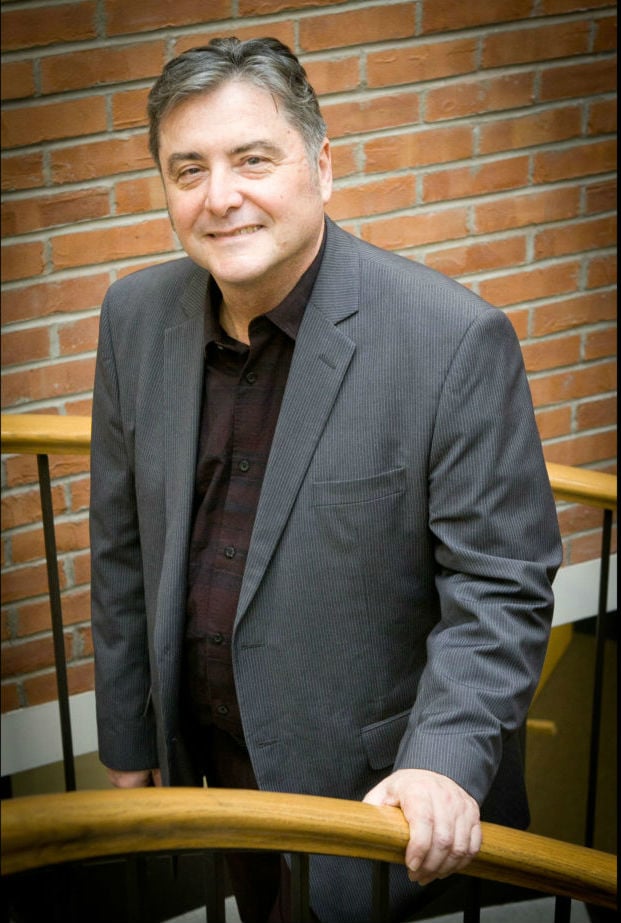
Elbio Barilari
Elbio Rodríguez Barilari was born in 1953 in Montevideo, Uruguay, where he studied at the Conservatório Universitario and with Coriún Aharonián, Graciela Paraskevaídis, and Héctor Tosar before continuing his education in Brazil with Eduardo Bertola, Hans-Joachim Koellreutter, Gilberto Mendes, Joaquín Orellana, and Conrado Silva at the Cursos Latinoamericanos de Música Contemporáne. He subsequently studied in Germany on an invitation from the Deutscher Musikrat, with Milko Kelemen, Helmut Lachenmann and Dieter Schnebel; he was also mentored while in Europe by Luciano Berio, Konrad Boehmer, Otto Donner, and Misha Mengelberg. As a clarinetist and saxophonist, from 1994 to 1997 Barilari led the Barilari Quinteto, and organized Planeta Blues, the first Uruguayan blues band to tour Europe and to record a compact disc; during the 1990s, he also led the fourteen-piece La Banda Oriental.
Since settling in the United States in 1998, Barilari has lectured at the University of Chicago and the Instituto Cervantes, and given workshops in Chile and Paraguay; he is currently on the faculty of the University of Illinois at Chicago. He has collaborated annually with the Grant Park Music Festival since helping to organize a tribute concert to Astor Piazzolla in 2002, for which he was also commissioned to write his Bandoneón Concerto. In June 2006, the Grant Park Orchestra, conducted by Carlos Kalmar, premiered his Canyengue at Millennium Park; that same season at Grant Park he also recruited and prepared the orchestra of native South American instruments for the performance of Ariel Ramírez’s Misa Criolla. Barilari is also the founder of “Global Warming,” a Chicago ensemble devoted to the exploration of various cultural traditions.
Elbio Barilari has been closely involved with educational and community affairs, having served as an advisor to the Ministry of Education and Culture in Uruguay, Uruguayan delegate to the cultural section of MERCOSUR, and Deputy Commissioner of the Committee for the Reform of the State of Illinois Code of Education. He has also been a member of the Community Advisory Board of the Chicago Symphony Orchestra since 2001, and was appointed to the CSO Programming Committee in 2006.
As a composer, Barilari has received commissions from the Grant Park Music Festival, Concertante di Chicago, Chicago Park District, Chicago Composer Forums, Orquesta Filarmonica de Montevideo, pianists Maria João Pires, and Marcel Worms, and guitarist Eduardo Fernandez; as well as a grant from the Sara Lee Foundation. In addition to works for orchestra, chamber ensembles and solo instruments, he has provided scores for more than forty plays in the United States, Argentina, Brazil, Paraguay, and Uruguay. In 2007, his Los Cantos for Soprano, Choir and Orchestra was premiered at the Civic Opera House of Chicago to celebrate the fiftieth anniversary of the Chicago Children’s Choir, with soprano Jonita Lattimore as the soloist, the Lyric Opera Orchestra, and the Chicago Children’s Choir under Josephine Lee. His Lincolniana, incorporating texts by Carl Sandburg and Walt Whitman and featuring jazz trumpeter Orbert Davis, Goodman Theatre actor–director Henry Godinez, and the Ondas Ensemble, was first heard at the Ravinia Festival in September 2008.
Barilari has published a novel (Lugares Comunes, 1987), four collections of short stories (Posibles Versiones [1985], Fuera de la Nada [1986], Alarmas y Excursiones [1990], and La Mitad del Infinito [1994]); and a book on Uruguayan folk and popular music (Aquí se canta, 1982, co-authored with Juan Capagorry). He has also served as music critic and columnist for the newspaper El País as well as editor-in-chief for La Raza, the leading American-Hispanic weekly, and director of its monthly publication Arena Cultural.